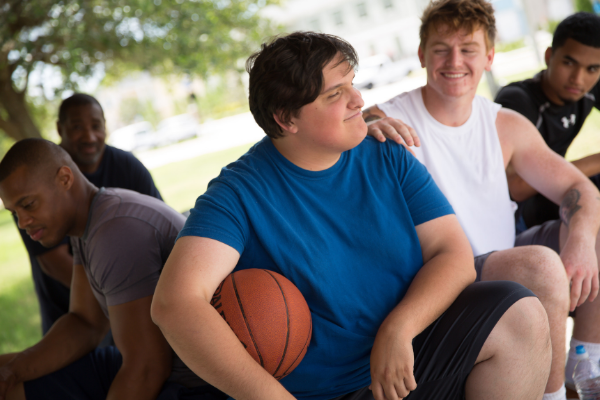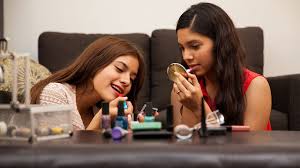
INDIANA – Body positivity is having its moment, and I think we should all be excited about that. Over the decades, we’ve seen fashion change, and along with that, so do beauty standards. It seems the bar is always moving and out of reach.

In today’s world, kids are surrounded by images of ” beauty ” and are constantly told what they can do to achieve that standard. But as more people come forward and embrace their bodies with all of their beautiful imperfections, how can we capitalize on this to help grow body-positive children?

To start, we need to understand the harm caused by commenting on a person’s body, even our own body, in front of our kids. Even when we think they are not listening, they are, and those little sponge-like brains internalize whatever message we’re putting out into the world. They hear that When we constantly put ourselves down in front of our kids. In addition, making comments on a child’s weight has lasting effects such as decreased self-esteem, depression, body dysmorphia, and disordered eating.
We should always encourage our children to live a healthy lifestyle. Teaching kids from a young age that weight does not equate to health is essential. When kids see or hear their parents or other trusted adults talk about people with bigger bodies negatively and deem them “unhealthy,” they internalize this.
When teaching kids the power of body positivity, the most important thing is to start by being a good role model. Be careful about the words you use to describe yourself and how you talk about your body. Be sure to speak of your own body using favorable terms. Also, talk to your kids about how all bodies are different and how their bodies aren’t expected to look just like anyone else’s. Make sure you set yourself up as someone they trust and can talk to when they feel self-conscious.

Trying to work on your relationship with food and exercise can also be a great way to be a role model for children. So often, we look at foods as “good” or “bad,” but all of it is fueling our bodies. Some foods give us more fuel, while others might make us feel like they have drained the fuel. This is a great way to talk about food with kids. There is a time and place for all types of snacks and treats. Talk about fueling our bodies, what foods give us more energy, and what foods will make us feel more substantial. It’s also important to stress that you never have to “earn” food through exercise. Be sure you show your kids that exercise is there to make them feel good, get stronger, and have more energy, not just be thin or fit a specific body type.
Eating disorders for young people are on the rise every year. Still, with more people coming forward and actively loving their bodies of all different shapes and sizes, we are moving toward allowing kids to feel comfortable and confident.

Ellen Dippel, MSW, LSW, is a Youth First Social Worker at Oakdale Elementary School in Warrick County. Youth First, Inc. is a nonprofit dedicated to strengthening youth and families. Youth First provides 90 highly trained mental health professionals (primarily master’s level social workers), prevention programs, parent engagement coordinators, and bilingual support personnel to 125 schools across 14 Indiana counties. Over 50,000 youth and families per year are served by Youth First’s school-based social work and community programs that promote mental health, prevent substance misuse, and maximize student success. To learn more about Youth First, visit youthfirstinc.org or call 812-421-8336.



